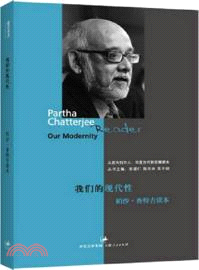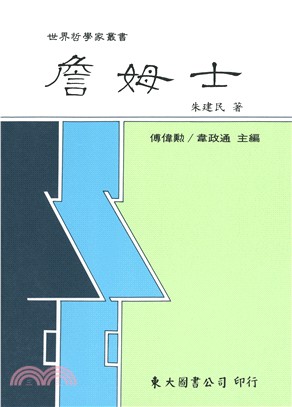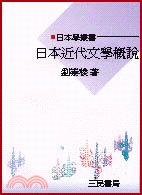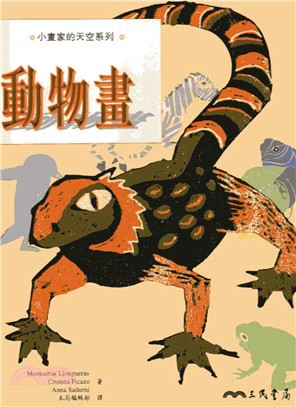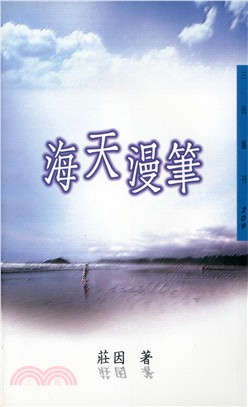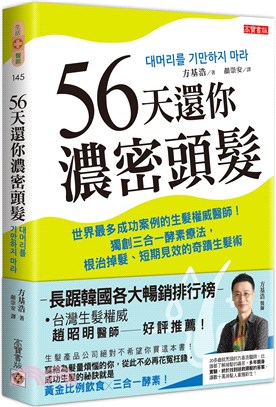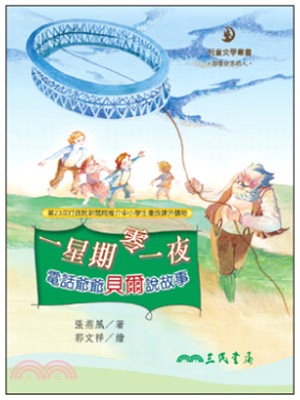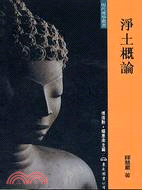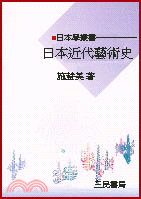我們的現代性:帕沙.查特吉讀本(簡體書)
商品資訊
商品簡介
作者簡介
帕沙·查特吉(Partha Chatterjee),印度“庶民學派”的代表人物。1947年出生于加爾各答,畢業于加爾各答大學院長學院政治系,在美國羅切斯特大學獲政治學博士學位,長期供職于加爾各答社會科學研究中心;曾在美國、歐洲、澳大利亞多所大學擔任訪問教職,目前是加爾各答社會科學研究中心的榮譽政治學教授和紐約哥倫比亞大學人類學教授。 查特吉已出版關于印度歷史、社會和政治的著作有,《民族國家及其碎片》《一種可能的印度》《被治理者的政治》等;以及兩本用孟加拉語寫成的評論文集《歷史遺產》《對象與系統》;同時查特吉還是一位著名的劇作家,已用孟加拉語創作了六部戲劇并公演。
名人/編輯推薦
再訪天竺 自明中土
在想像世界版圖的“西方”時,尚有一個離感官更遠而腳程更近的“西天”。
中國須要深切思考印度、親近印度是為了自明。
中印兩國首次在當代藝術與學術的深入交流,探討歷史文明和當代文化的歸屬,八位當代印度批判知識界、藝術圈最活躍頭腦的作品集。 2010年秋,上海雙年展“從西天到中土:印中社會思想對話”成果之一
目次
流行文化批判 兩位詩人及其死亡 我們的現代性 社群在東方 今日之民族主義
Critique of Popular Culture Two Poets and Death Our Modernity Community in the East Nationalism Today
書摘/試閱
全球化時代中的當下歷史
每次說到啟蒙,我都忍不住想起卡邁勒庫馬爾?馬宗達(KamalKumar Majumdar)的小說《安塔嘉麗?亞特拉》11 開頭令人難忘的一段描寫。
光明漸漸來了。天空一片沐霜的紫紅,就像石榴的顏色。很快,紅色將占滿整個天幕,我們這些塵世間的凡人將再度沐浴在花朵的溫暖中。漸漸地,光明來了。
現代性是第一個編織尋常百姓心中的獨立夢和自主夢的社會哲學。現代社會的權力機制不再通過最高主權的命令存在和運轉,而是通過專業劃分讓每個人根據理性的指示自我約束和管理。然而,無論理性這塊布多么巧妙地遮蔽了權力現實,對獨立自主的向往永遠都會奮起反抗;權力遭到抵制。我們不要忘了,曾幾何時,現代性是在印度推行殖民統治的最強有力的論據:我們聽到,外族的統治是必要的,因為印度人首先需要接受啟蒙。后來,又是同樣的現代性邏輯讓我們發現帝國主義不合法;我們想走的是獨立的路。理性的負擔;自由的夢想;對權力的欲望,對權力的反抗——所有這些都是現代性的組成要素。現代性并沒有在權力網絡之外為我們準備任何應許之地。因此,對現代性你既不能擁護也不能反對;只能制定策略,與之適應。這些策略有時有益,但常常具有破壞性;有時寬容,但可能更多時候兇猛又暴力。正如我前面講過的,我們必須得拋棄過去那種簡單信仰:什么東西只要是現代的、理性的,就一定有好處。 在卡邁勒庫馬爾的小說結尾,一場恐怖的大洪水就像不可阻擋的命運之手,把腐敗墮落的印度社會從地球上抹去。洪水同時也帶走了那些鮮活、美麗、愛和善的東西。低賤的凡人無力挽救他,因為他無權觸碰神圣和純潔的事物。
一只眼睛,就像毒芹上映照出來的眼睛一樣,正盯著她,初次品嘗愛情的新娘。眼睛是木頭的,因為被畫在船身一側;但顏料是朱紅色,而且隨著波浪溫柔地拍擊船身,眼角沾上了一些水滴。木頭的眼睛可以流淚。因此,不知從哪兒生出一股眷戀之情。
這種眷戀之情就是我們現代性背后的驅動力。如果認為這是懷舊,是不愿改變的頑固,那就等于對自己不公平。相反,正是由于有這種對過去的眷戀,我們才覺得現狀需要改變,而改變就是我們的任務。我們必須牢記,在現代性的世界舞臺上,我們是不可接觸者,是被放逐的人。對我們來說,現代性就像一家外國商品超市,貨架上放著琳瑯滿目的商品:只要花錢就能買到任何東西。沒人相信我們也能成為現代性的生產者。印度目前最可悲的一點在于我們的附庸地位,我們無法成為自身權利的主體。但是,正因為我們想要現代,所以才把企求獨立、創造的欲望投射到過去。要說這個過去是想像之物就太膚淺了,因為所有過去都只存在于想像當中。在“此時”之不完整、不滿足的對立面,我們樹立起一個美麗、繁榮、健康、自由交往的“彼時”,而且最關鍵的一點是那個“彼時”完全由我們自身開創。對我們來說,“彼時”不是一個歷史意義上的過去;我們構建它只為標識與當下的不同。需要注意的是,康德在西方現代主義奠基之時說到當下,是把它當作逃離過去的場域;而就我們的感受來說,要逃離的正是目前所處的當下。我們面對現代性時采取的模式和西方從歷史進化意義上進入現代性的方法最大的不同也就在于此。 我們的現代性是曾被殖民過的現代性。曾經教會我們現代性價值的歷史進程也讓我們成了現代性的犧牲品。因此,我們對現代性的態度只能是非常曖昧的。這一點反映在過去150年我們對現代性經驗的描述里,從拉吉納拉揚?巴蘇到我們的同代人莫不如此。但這種曖昧的態度絕不是因為不確定到底應該擁護還是反對現代性。相反,曖昧是由于我們知道為了創建屬于我們自己的現代性形式,有時必須要勇敢地拒絕別人建立好的現代性。民族主義時期已經有過很多充滿勇氣和創造力的行動。當然不是所有都取得了成功。如今身處全球化時代,我們也許應該再次喚起這種勇氣。現在也許應該想想我們的現代性到底有著怎樣的“此時”和“彼時”。 Present History in the Age of Globalization Whenever I think of enlightenment, I am reminded of the unforgettable first lines of Kamalkumar Majumdar's novel Antarjali Yatra.
Light appears gradually. The sky is frosty violet, like the colour of pomegranate. In a few moments from now, redness will come to prevail and we, the plebeians of this earth, will once more be blessed by the warmth of flowers. Gradually, the light appears. (p. 1)
Modernity is the first social philosophy which conjures up in the minds of the most ordinary people dreams of independence and self-rule. The regime of power in the modern societies prefers to work not through the commands of a supreme sovereign but through the disciplinary practices that each individual imposes on his or her own behaviour on the basis of the dictates of reason. And yet, no matter how adroitly the fabric of reason might cloak the reality of power, the desire for autonomy continues to range itself against power; power is resisted. Let us remind ourselves that there was a time when modernity was put forward as the strongest argument in favour of the continued colonial subjection of India: foreign rule was necessary, we were told, because Indians must first be enlightened. And then it was the same logic of modernity which one day led us to the discovery that imperialism was illegitimate; independence was our desired goal. The burden of reason, dreams of freedom; the desire for power, resistance to power: all of these are elements of modernity. There is no promised land of modernity outside the network of power. Hence, one cannot be for or against modernity; one can only devise strategies for coping with it. These strategies are sometimes beneficial, often destructive; sometimes they are tolerant, perhaps all too often they are fierce and violent. We have, as I said before, had to abandon the simple faith that because something was modern and rational, it must necessarily be for the good. At the end of Kamalkumar's novel, a fearsome flood, like the unstoppable hand of destiny, sweeps away a decadent Hindu society. With it, it also takes that which was alive, beautiful, affectionate, kind. The untouchable plebeian cannot save her, because he is not entitled to touch that which is sacred and pure.
A single eye, like the eye mirrored on hemlock, kept looking at her, the bride seeking her first taste of love. The eye is wooden, because it is painted on the side of a boat; but it is painted in vermilion, and it has on it drops of water from the waves now breaking gently against the boat. The wooden eye is capable of shedding tears. Somewhere, therefore, there remains a sense of attachment.(p. 216)
This sense of attachment is the driving force of our modernity. We would be unjust to ourselves if we think of it as backward-looking, as a sign of resistance to change. On the contrary, it is our attachment to the past which gives birth to the feeling that the present needs to be changed, that it is our task to change it. We must remember that in the world arena of modernity, we are outcastes, untouchables. Modernity for us is like a supermarket of foreign goods, displayed on the shelves: pay up and take away what you like. No one there believes that we could be producers of modernity. The bitter truth about our present is our subjection, our inability to be subjects in our own right. And yet, it is because we want to be modern that our desire to be independent and creative is transposed on to our past. It is superfluous to call this an imagined past, because pasts are always imagined. At the opposite end from "these days" marked by incompleteness and lack of fulfillment, we construct a picture of "those days" when there was beauty, prosperity and a healthy sociability, and which was, above all, our own creation. "Those days" for us is not a historical past; we construct it only to mark the difference posed by the present. All that needs to be noticed is that whereas Kant, speaking at the founding moment of Western modernity, looks at the present as the site of one's escape from the past, for us it is precisely the present from which we feel we must escape. This makes the very modality of our coping with modernity radically different from the historically evolved modes of Western modernity. Ours is the modernity of the once-colonized. The same historical process that has taught us the value of modernity has also made us the victims of modernity. Our attitude to modernity, therefore, cannot but be deeply ambiguous. This is reflected in the way we have described our experiences with modernity in the last century and a half, from Rajnarayan Basu to our contemporaries today. But this ambiguity does not stem from any uncertainty about whether to be for or against modernity. Rather, the uncertainty is because we know that to fashion the forms of our own modernity we need to have the courage at times to reject the modernities established by others. In the age of nationalism, there were many such efforts which reflected both courage and inventiveness. Not all were, of course, equally successful. Today, in the age of globalization, perhaps the time has come once more to mobilize that courage. Maybe we need to think about "those days" and "these days" of our modernity.
主題書展
更多書展本週66折
您曾經瀏覽過的商品
購物須知
大陸出版品因裝訂品質及貨運條件與台灣出版品落差甚大,除封面破損、內頁脫落等較嚴重的狀態,其餘商品將正常出貨。
特別提醒:部分書籍附贈之內容(如音頻mp3或影片dvd等)已無實體光碟提供,需以QR CODE 連結至當地網站註冊“並通過驗證程序”,方可下載使用。
無現貨庫存之簡體書,將向海外調貨:
海外有庫存之書籍,等候約45個工作天;
海外無庫存之書籍,平均作業時間約60個工作天,然不保證確定可調到貨,尚請見諒。
為了保護您的權益,「三民網路書店」提供會員七日商品鑑賞期(收到商品為起始日)。
若要辦理退貨,請在商品鑑賞期內寄回,且商品必須是全新狀態與完整包裝(商品、附件、發票、隨貨贈品等)否則恕不接受退貨。




